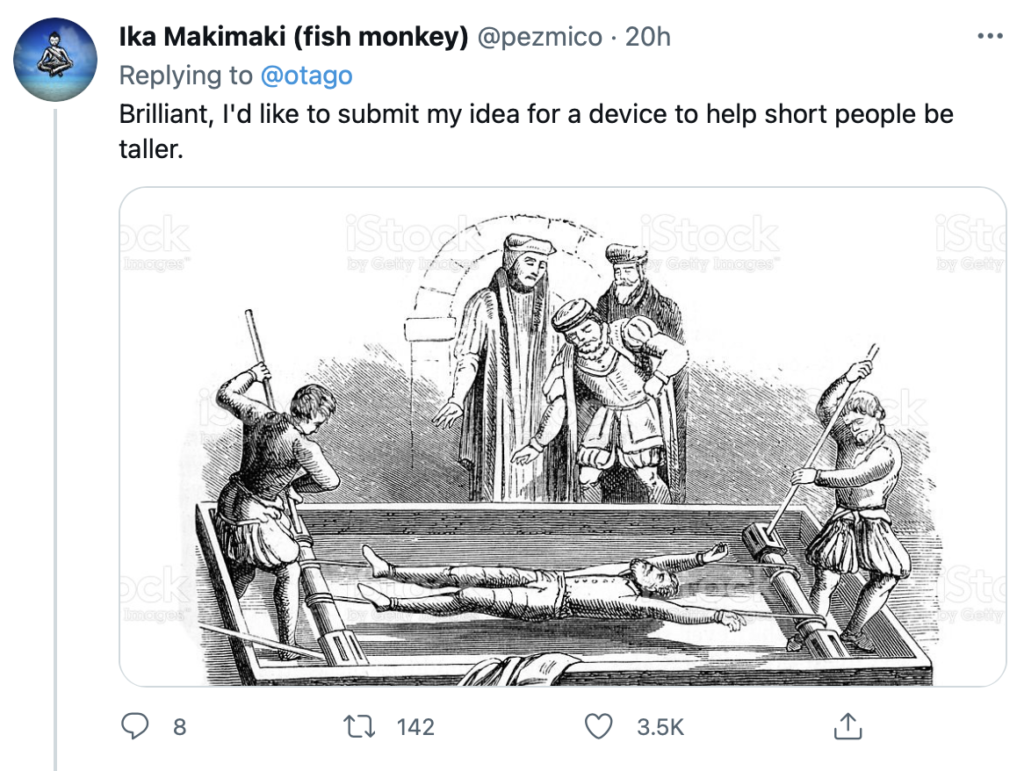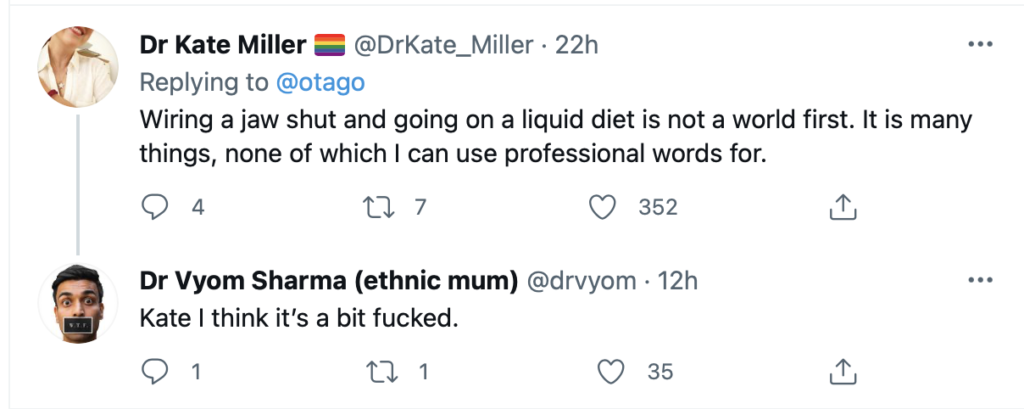The use of a jaw lock device to enforce a liquid diet has been compared to medieval torture, but researchers say it could help patients who must lose weight before surgery.
A magnetic brace that snaps teeth shut so people can only drink liquids has been compared to a medieval torture device on Twitter, but researchers say it could help patients who must lose weight before surgery.
The DentalSlim Diet Control device was studied in seven people with obesity, with a paper published in the British Dental Journal on 25 June.
In the study, the intra-oral device was cemented to the upper and lower back teeth and magnets were used to hold the jaw together. It took about 20 minutes for a dentist to place the device.
Once fitted, the study participants could open their mouths about 2mm wide and talk and breath but were physically restricted to a liquid diet and couldn’t brush their teeth.
By the end of the trial, the average weight loss was 6.36kg.
Otago and UK researchers have developed a world-first weight-loss device to help fight the global obesity epidemic: an intra-oral device that restricts a person to a liquid diet. Read more: https://t.co/eLhXwipiqs pic.twitter.com/Of6v3uvVbX
— University of Otago (@otago) June 28, 2021
In case of emergencies, such as vomiting (where there was a risk of choking), the people fitted with the device could unlock it using a tool. This did not need to be used during the study period, mercifully.
People in the study were given a commercially available liquid diet for two weeks and filled in quality-of-life questionnaires at 1,7 and 14 days.
Subjects reported feeling “embarrassed, self-conscious and that life, in general, was less satisfying” after just 24 hours, the researchers said.
On day seven, the magnets were unlocked, and patients were able to brush their teeth.
Some participants reported occasionally feeling that their oral hygiene was unsatisfactory, although they were given chlorhexidine-based mouthwash to use. (Forget flossing!)
“The intraoral device tested is a non-invasive, reversible, attractive and economical alternative to surgical procedures such as bariatric surgery, having little or no morbidity,” the researchers said.
“The device could be helpful for short-term weight loss with a specific goal, such as in obese patients who require knee or hip replacement surgery or in preparation for bariatric surgery, but who will only get their procedure if they lose weight.”
The UK and New Zealand research was posted to Twitter by the University of Otago and immediately attracted a string of negative comments.





The University of Otago quickly sought to clarify the messaging, posting this message to the Twitter feed:
“To clarify, the intention of the device is not intended as a quick or long-term weight-loss tool; rather it is aimed to assist people who need to undergo surgery and who cannot have the surgery until they have lost weight.
“After two or three weeks they can have the magnets disengaged and device removed. They could then have a period with a less restricted diet and then go back into treatment. This would allow for a phased approach to weight loss supported by advice from a dietician.”
The Back Page’s view is this: If a device this unpleasant is necessary for people to commit to a restricted diet, can we all agree now that sugar is addictive and obesity is a disease?
Also, can we get a model that looks more like something a James Bond villain would wear?

Having metal teeth could come in handy too… Send story tips to felicity@medicalrepublic.com.au.


